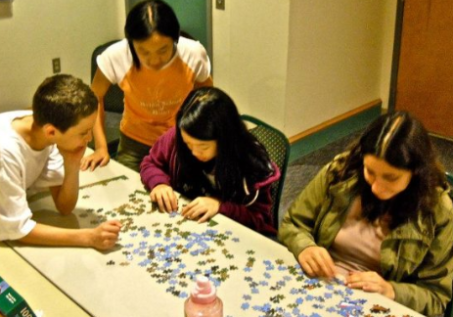I work best in short, intense segments of time. My favorite is 20 minutes. I separate these with 5 minutes of doing something non-musical, like washing a few dishes. It makes the segments more potent. This kind of time organization is for really focused, problem-solving work.
So what should be one 20 minute block?
It should be one very small thing. The work of narrowing it down is literally an important part of the work. It may take 4 or 5 minutes just to decide which note or which rest or which moment is the problem. This thought process itself is of import. I worked through this idea with a student tonight, and I’m going to share the specific musical moment because many readers will be familiar with it, but even if you aren’t, I think it translates.
You know the Gavotte at the end of Suzuki book 1? You know THE 8 notes? (I know you do. But just to be clear, I’m talking about the 16th notes in measure 20.) I asked my student which note was the problem; he thoughtfully played each note slowly and correctly chose the c natural. Then he decided it was the approach to this note, and not the departure from it. So then we had two notes, D descending to C. But this is simple, even very fast, so we weren’t there yet. We added the 4th finger E before these two notes, and we were in business. Now it’s been maybe 7 minutes? Now is the very focused, relaxed work of playing through these three notes. We created a tiny mini-etude working up and down the notes like a Philip Glass motive. One finger at a time, we considered the relaxation and accuracy of each finger, including the thumb. We considered the subtle rocking of the 3rd finger on it’s tip. At about 13 minutes, we add the 2 previous notes. We do this when the initial 3 feel easy, and we choose the previous 2 (only) because they add a new complication, and adding the 2 before (the b & d) does not. We now have a 5 note cell, isolated and slow at first, to work out what EXACTLY is going on in this measure. At the end of 20 minutes, we’ve done a great & focused thing. We may not be done with it, but we will have truly progressed with it. After a 5 minute break, I suggest working on a different thing for the next 20 minute segment; come back to these notes later today or tomorrow. This is how I work best, at least.
This is what truly takes up 20 or 25 minutes of great practice. If you do this work in 5 minutes, you aren’t doing it right. We’ve all been there, and we were wrong.
